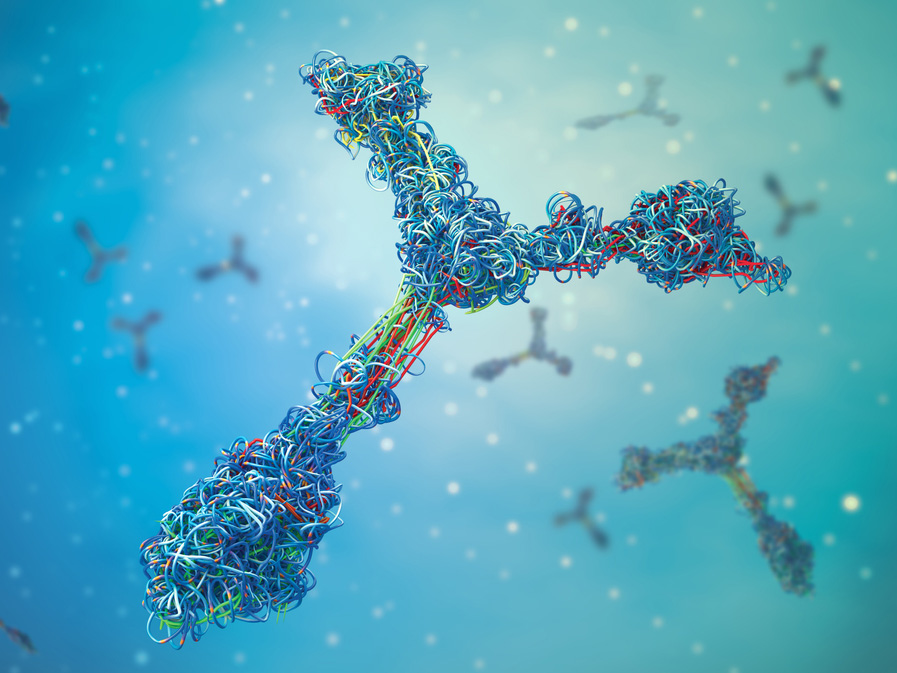
Cancer cells differ in a number of ways from healthy cells, which is one reason why researchers are focusing on developing novel targeted cancer therapies.
The pathway to a successful cell and gene therapy for solid tumors requires identification of at least one target. A cell-surface protein known as mesothelin could be a viable target for promising cell and gene therapies like CAR T-cell therapies and T-cell receptor therapies.
In this blog article, Alliance for Cancer Gene Therapy (ACGT) explores the possibility of targeting mesothelin for several solid tumor cancers, most notably ovarian cancer and pancreatic cancer. This article explains what mesothelin is, which solid tumors express it, and how scientists are developing therapies to pursue this protein.
What is mesothelin?
Mesothelin is a cell-surface protein expressed in healthy cells along three thin tissue linings called the mesothelium. These tissue linings are located in or around the lung cavity, abdominal cavity, and heart.
Mesothelin also exists, in small amounts, on surface cells of the ovary, tunica vaginalis, rete testis and fallopian tubes.
What makes mesothelin a potential target for cell and gene therapy is its expression on the surface of several cancers.
Which cancers express mesothelin?
Solid tumor cells express different proteins depending on the type of cells making up the tumor and where it forms. This is one of the main challenges of treating cancer with targeted therapy, as it requires identifying an antigen for each type of cancer. Some cancers may share a common antigen, while others have targets unique to just their cells.
One of the reasons cell and gene therapy research features targeting mesothelin is this protein is carried by several solid tumors. According to an article in Biomarker Research, mesothelin was expressed in samples of:
- Ovarian cancer (100% of samples)
- Pancreatic cancer (91%)
- Lung cancer (31%)
- Colon cancer (31%)
This data points to mesothelin as a viable target for treating ovarian cancer and pancreatic cancer. The next step is identifying which therapies to use.
Creating cell and gene therapies to target mesothelin
Two options for creating and using targeted cancer therapies concentrated on mesothelin include:
- CAR T cells
- Engineered T-cell receptors
CAR T cells targeting mesothelin
CAR (chimeric antigen receptor) T cells are laboratory-enhanced T cells. Doctors remove T cells from a patient’s bloodstream and add new genes that create a new protein receptor. This protein receptor can be engineered for mesothelin before the CAR T cells are infused back into the patient.
Researchers at the National Cancer Institute are exploring a CAR T-cell therapy to target mesothelin to treat ovarian cancer, pancreatic cancer, and a rare cancer called mesothelioma that forms in the mesothelial cell linings.
T-cell receptors targeting mesothelin
Engineered T-cell receptor (TCR) therapies can also target mesothelin. TCR therapy is similar to CAR T-cell therapy yet is designed to search for fragments of cancer cell proteins called peptides.
ACGT Research Fellow Matthias Stephan, MD, PhD, is creating a mesothelin-targeted TCR therapy at Fred Hutchinson Cancer Research Center. Dr. Stephan is using injections of nanoparticles to reprogram T cells with these T-cell receptors. These receptors will target mesothelin for pancreatic cancer and ovarian cancer.
There are other research projects focused on TCRs targeting mesothelin:
- Fred Hutchinson Cancer Center is hosting a clinical trial to test a TCR therapy for pancreatic cancer
- TCR² Therapeutics is developing variations of a mesothelin-targeting TCR, called gavo-cel, for ovarian cancer, pancreatic cancer, colorectal cancer and mesothelioma.
Help advance cell and gene therapy research for cancer
Alliance for Cancer Gene Therapy is the first and only funding organization dedicated exclusively to advancing cancer cell and gene therapy research. You can help by making a tax-deductible contribution today.
Since the day it was founded, 100% of all public donations directly support innovative frontline scientists working on thoroughly vetted and responsibly monitored strategies for cancer cell and gene therapies. Your support will help us all get closer to a cure.
You can also sign up for ACGT’s monthly email newsletter to stay informed on cell and gene therapy research.
Page sources
- Mesothelin as a biomarker for targeted therapy. Biomed Central. Retrieved from: https://biomarkerres.biomedcentral.com/articles/10.1186/s40364-019-0169-8. Accessed: 05/10/2022.
- Engineered Adoptive T-cell Therapy Prolongs Survival in a Preclinical Model of Advanced-Stage Ovarian Cancer. Cancer Immunology Research. Retrieved from: https://pubmed.ncbi.nlm.nih.gov/31337659/. Accessed: 05/10/2022.
- TCR² Therapeutics Reports First Quarter 2022 Financial Results and Provides Corporate Update. Biospace. Retrieved from: https://www.biospace.com/article/releases/tcr-therapeutics-reports-first-quarter-2022-financial-results-and-provides-corporate-update/. Accessed: 05/13/2022.
- Is mesothelin a key to tackling solid tumors? Some biotech companies are betting that it is. STATnews. Retrieved from: https://www.statnews.com/2023/01/20/mesothelin-solid-tumors-cancer-biotech-companies/. Accessed: 01/23/2023.



